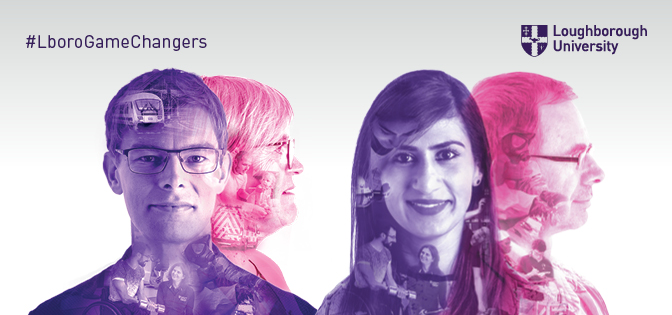Project lead Dr Saul Albert, of the School of Social Sciences and Humanities, aims to submit the research findings as evidence for the various House of Commons and Lords groups that have health, social care and technology in their remit in the hope it will lead to positive changes.
There is a crisis in social care for disabled people and care providers are turning to AI for high-tech ‘solutions’ – with robot carer seals and the humanoid robot Pepper having made headlines in recent years.
However, current research focuses predominantly on medical or custom technological interventions rather than on disabled people’s productive adaptations of mainstream consumer technology to enhance their independence.
The Loughborough project will use a ‘Social Action’ research methodology to explore how people with disabilities are using technology to deal with access issues they face in their daily lives.
Social Action research involves research ‘participants’ – in this case disabled people and carers – in co-designing and steering the project from the outset. They will act as co-investigators, having a say at every stage of the data-gathering, analysis and dissemination phases of the research project.
As well as getting an idea of how tech is currently being used, the project will explore the wider opportunities that AI presents for the future of social care, for example, more efficient services, but also the risks, such as enabling further cuts to health and social care budgets.
Findings will be shared with disabled people’s organizations, key academic outlets, as well as parliamentary groups on AI, disability, and social care.
It is hoped this project will impact on current debates around AI in social care by developing a group of skilled participant-researchers and ongoing follow-up projects in this increasingly important area of policy and practice.
Dr Albert said: “Disabled people are very adept at adapting consumer devices to deal with access issues. In the next few years, the big tech companies will put voice technologies in every home, so we want to use this opportunity to make sure access needs are considered.
“From the perspective of the disability movement and Social Action research, with which our project is aligned, many of the wacky ideas about robot carers sensationalise tech ‘solutions’ and ignore the more fundamental obstacles that disabled people face in society.
“Similarly, health and care services often focus on how technology will 'fix' individual people’s impairments, rather than looking for relatively cheap and straightforward systemic adaptations to the environment that could provide greater accessibility for everyone.
“Furthermore, given the constraints of funding in health and social care, and from our previous research talking to disabled people in the different policy environments across England, Wales and Scotland, most anticipate that these technologies will be used to drive efficiency, to reduce provision of personal assistants, and to justify further cuts to social care budgets.”
He continued: “This project aims to explore how disabled people adapt new technologies and work with care services to manage in their daily lives and I hope it will encourage more researchers, designers, and policy professionals to use Social Action research methods."
Other researchers that will work with Dr Albert on the project include Loughborough University’s Professor Elizabeth Stokoe, Professor Thorsten Gruber, Dr Crispin Coombs, and Professor Donald Hislop, of the University of Aberdeen and previously of Loughborough University.
The research will also be conducted in collaboration with Mark Harrison, of SocialAction.info – a social enterprise that specialises in Social Action research methodology.
Of the project’s importance, Mr Harrison commented: “The crisis in social care is one of the big political and social policy issues of our time. Unfortunately, the debate often focusses on cost rather than quality of life.
“Our research approach puts disabled and older people at the heart of the enquiry process. Because it is rooted in the real lives of people who use care services, we are confident there will be positive outcomes for participants.
“By co-producing the research with experts, one aim is to enable people to empower themselves through the process. Another key aspect will be peer-to-peer learning, connecting people who can share experiences and creating a community of AI users.”
The team have been awarded funding by the British Academy to run this pilot project for one year. The pilot findings will then be used to develop a four-year project that is hoped to run from 2020-2024.
The research group are asking technology users with disabilities to get in touch if they would like to be involved in shaping the project. Email s.b.albert@lboro.ac.uk to express your interest.

